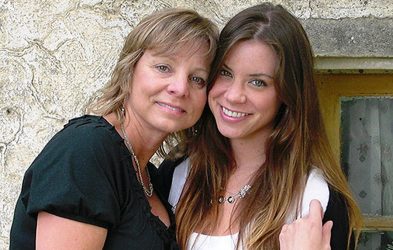By Dora Csikos
I started to volunteer in Budapest’s only hospice house more than a year ago because I wanted to give my time and attention to those who are living behind the walls of the taboo of dying and death. This hospice house is a small, ten-bed institution that is based completely on the classic hospice approach. Volunteers serve in pairs, in two 4-hour shifts daily in addition to nurses, doctors, psychologists, physical therapists, and other professional team-members.
When people learn that I visit dying people, they always ask, “How can you endure providing this service?” But I don’t see anything special to endure—I see people just like me who need help with a few tasks and who are glad to talk to someone, to teach someone, to be angry at someone.
In fact, I have been learning continuously since my first shift at the hospice. I can walk into a room of total strangers and help them with whatever they need, including physical assistance, listening (really listening) to whatever they have to say, or simply leaving them alone. I have learned a few practical skills, like how to hold and move someone who can’t move, how to get someone seated into a wheelchair, how to rub someone’s foot that is full of fluids, and how to feed someone with respect to their residual capabilities. I know that patience and a good palliative physician can improve quality of life to a surprisingly high level, and also that the habit of smoking keeps patients mobile the longest. I have seen that the process of dying usually puts the biggest stress on family members. And of course I had to learn to let go of all those people, which is a very hard part of this job. What puts me back on track is sharing the experience with other staff and family members and making sure that I spend my shift with the complete focus on the patients and their needs.
What I value the most in my service is to be able to see the human faces and personalities behind the illness, how each patient can be just themselves, just human. They can smile, cry, love and hate, be curious, crave for certain foods, be stubborn, turn their back to you, keep talking, enjoy the sun with closed eyes, be satisfied after a good night’s sleep, be angry at death, crave to be accepted, tell silly jokes, hold your hand, and be just like anyone else.
On a secondary level, I have also learned a lot about my own end-of-life wishes. I know that I do not wish for a quick death as most people do. I wish to be surrounded by family and friends. I also wish to be able to say my goodbyes, to have the time to get ready for the other side, and to leave my loved ones behind in a way that comforts them after I die. This all may sound weird and scary but in the end it is simply about living my life in a more conscious way in the here and now.
About the Author
Dora is a hospice volunteer for Magyar Hospice Alapitvany (Hungarian Hospice Foundation), Hungary’s first hospice house, in Budapest. In 2013 she left the field of marketing communications and turned to end-of-life planning. She is the co-founder of the Eletvegi Tervezes Alapitvany (End of Life Planning Foundation), which provides information about end-of-life issues from legacy planning and healthcare decisions to psychological and financial issues to burial services and digital legacy, and holds lectures for the public with experts in the above fields.
Read our open call for guest writers →


No comments.